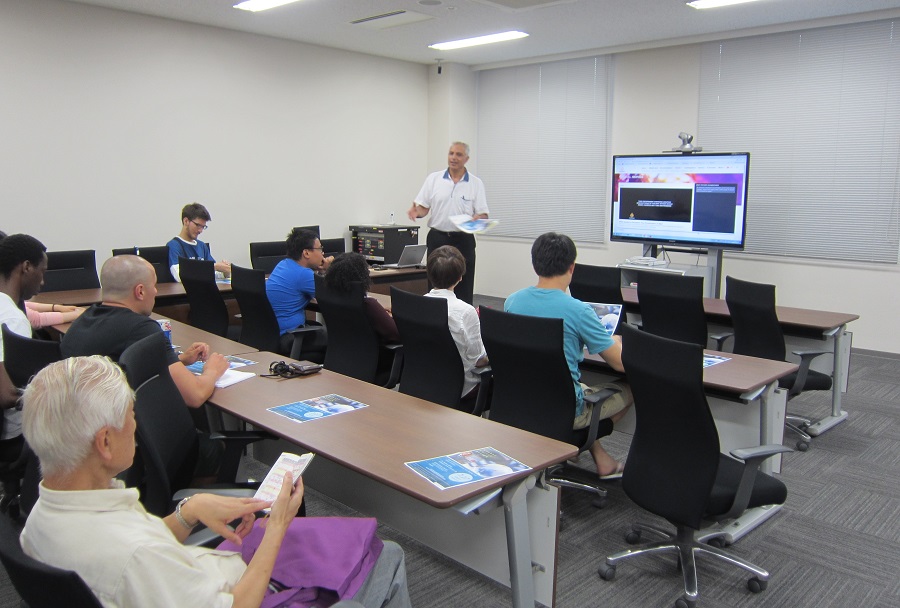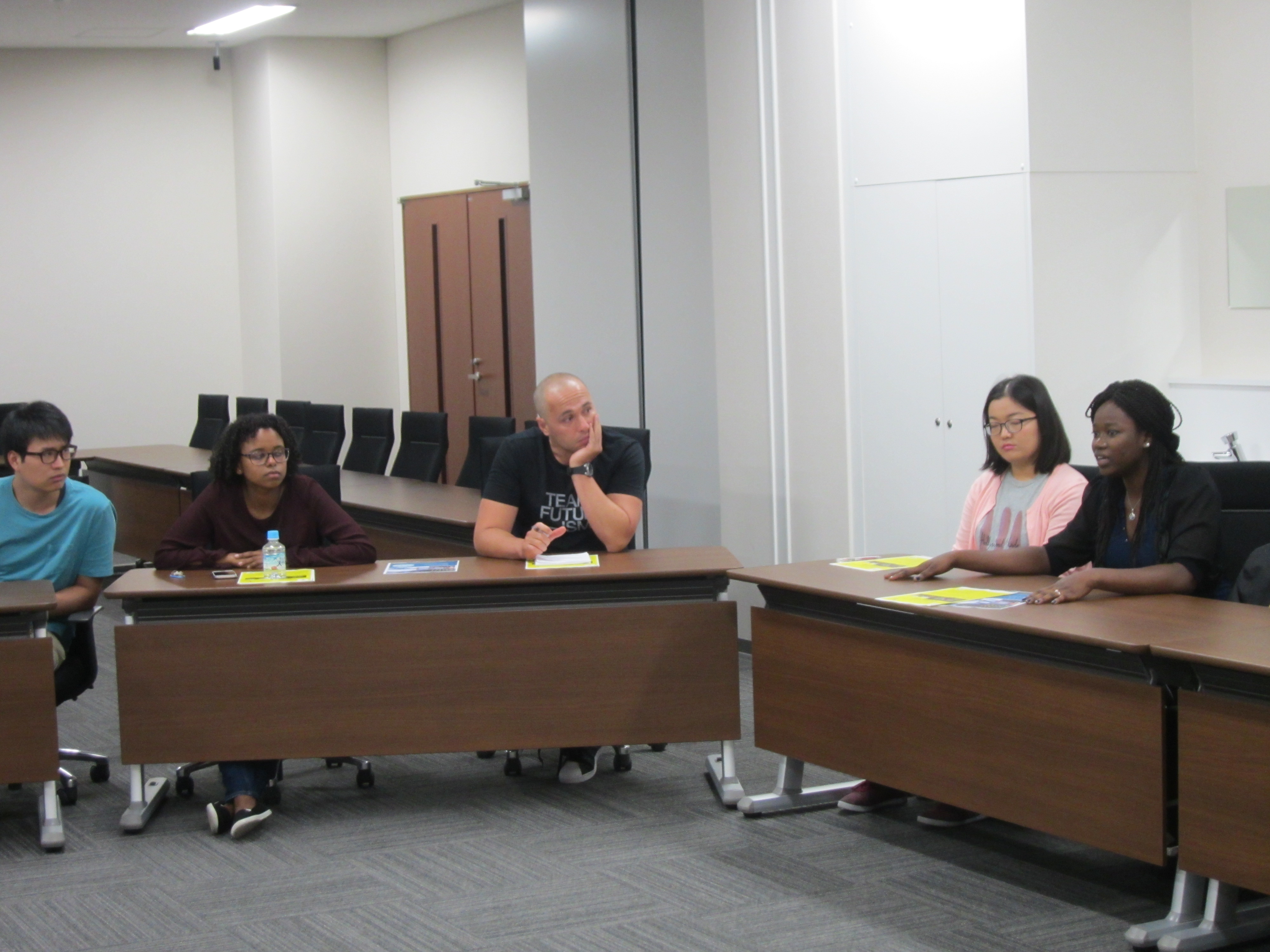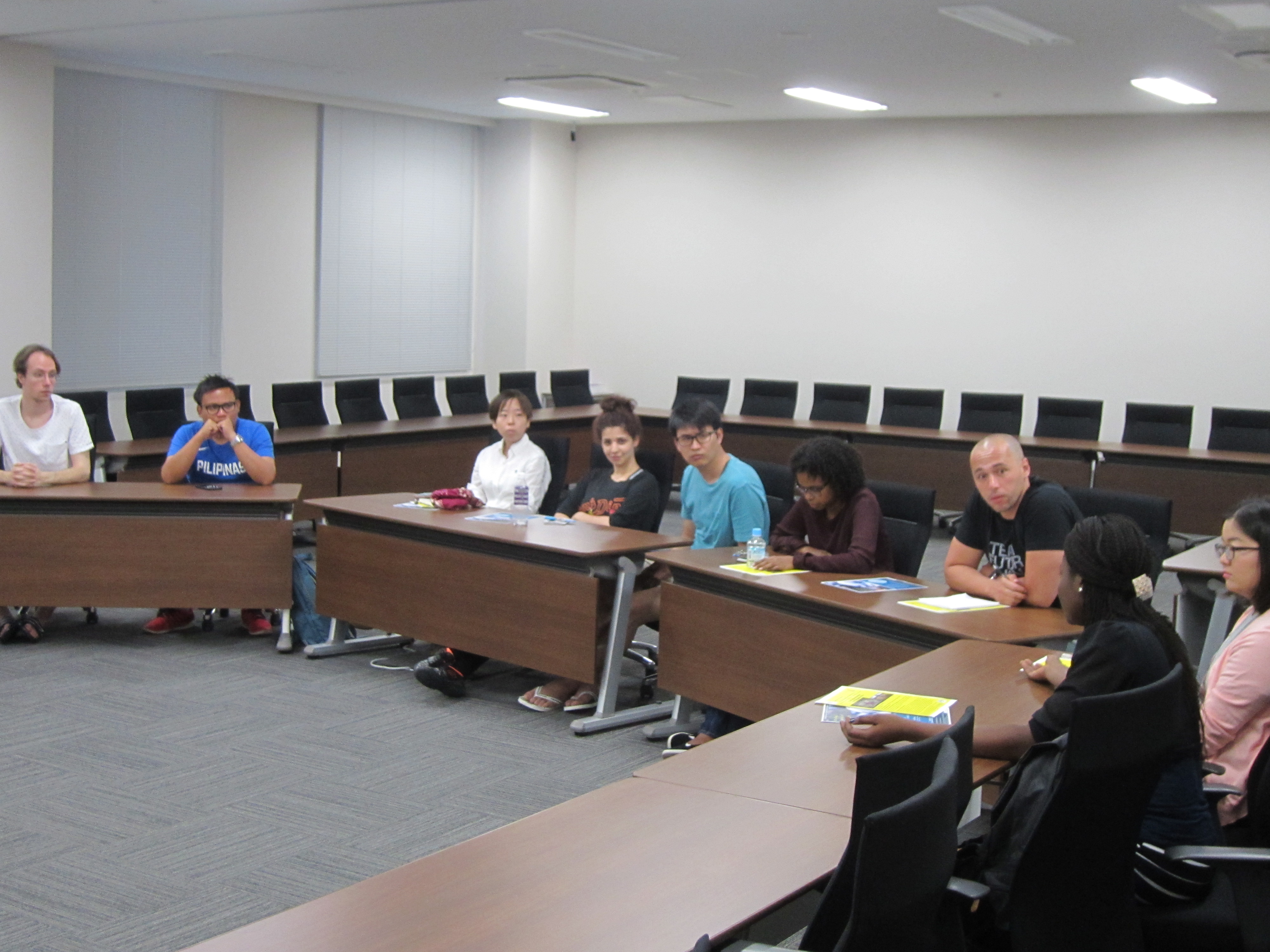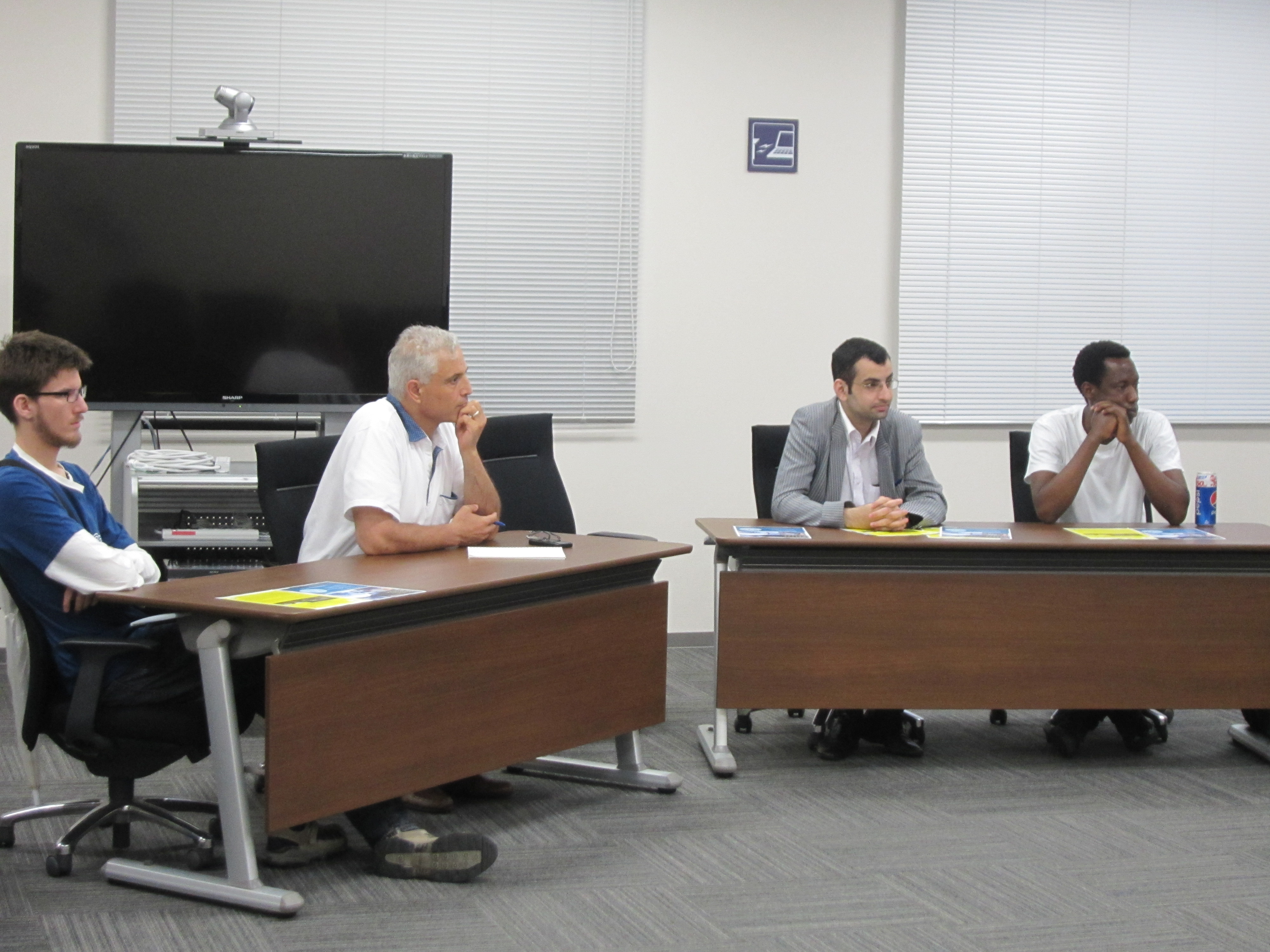Recent Activities
GRM Monthly Documentary Film Event - July
2018/07/23
A documentary film event was held on Thursday,12 July.
We watched a film, titled
“Child Soldiers Reloaded: The Privatization of War”
----------------------------
Date: Thursday 12 July 2018
Time: 17:30 P.M. - 19:30 P.M.
Venue: Meeting Room, Shikokan Building (1F), Karasuma Campus
Doshisha University
----------------------------
Written by Iyas Salim, PhD
Advanced Research and Education, Doshisha University
“I survived my life in weapon,” said one former child soldier, from Sierra Leone, West Africa, after returning from a fighting mission in Iraq. This documentary film traces the stories of a number of former child soldiers, hired to fight wars at global level through the so called security companies or private military industry. The 21 century is witnessing a dramatic widespread of privatization of war or outsourcing of war. For governments to wage wars, it is easier to use soldiers, hired or outsources by private companies, than recruiting own nationals or citizens. Casualties are inevitable during wars. Returning body bags wrapped in national flags can stir a widespread sentiment of outcry as the cost of war rises in body counts. Thus, governments opt for private security companies to hire soldiers to be sent to combat zones and military operations around the globe such as Iraq and Afghanistan. The sector of private military industry is flourishing as a global force with profits running in tens of billions of dollars.
In the film, one specialist on privatization of war explained that the year 2001 was like a “gold rush” to the private military industry. After 9/11 contracts were astronomically risen. Private military companies took over responsibilities ranging from training and combat roles to intelligence analysis and security. During the US invasion of Iraq, Aegis private security company took the main role of coordinating all activities of private security companies to protect US military bases in Iraq.
When the US ended its direct military involvement in Iraq, budgets decreased and the private military contractors began looking to hire cheaper soldiers. Many of those soldiers where brought from Sierra Leone and Uganda, according to the investigation of the film. Former child soldiers mean better chances of performing military jobs. Currently the number of former child soldiers is not known. The US Congress designated a commission to look into outsourcing to private military companies. However, the commission did not investigate the recruitment of former child soldiers. The common found out that the US government has been “dependent on private military companies in Iraq and Afghanistan.” Financially speaking, between $ 30 to $60 Billion “disappeared to waste and fraud.”
In the discussion following the film, students and participants, engaged in a lively debate on the issue of former child soldiers and outsourcing of war. Students from Africa in particular found the film related enough to events at home. Most of the former child soldiers, hired by private military, come from Uganda, Sierra Leone and West Africa. One student commented that recruiting children as soldiers in Mali is a very sad and serious problem. Malian children can be found used in different combat parts of conflict regions within Mali. It is a sad reality and we must find a solution to this terrible human tragedy, she said. In Uganda, contractors with money lure young people to join private military companies. One student from China expressed her shock at how children are abused by being forced into joining combat and military operations. She said that in China the possession of gun is outlawed and that such idea of child soldier is unconceivable. Another participant asked why in Africa? And how many children are forced to fight in wars and conflicts?
Wars and civil wars create power vacuum and disorder. Private security companies take advantage of lack of order and absence of laws. Foreign security companies collaborate with local war lords. Civil wars and conflict cause poverty where vulnerable young people fall victims and taken advantage of. Also, human trafficking is a serious problem as a result of war and chaos.
How is it possible to stop recruiting children as soldiers and later become adult mercenaries through private military industry? One participant explained that if it is affordable to provide a gun to a jobless young man, why not “provide him with a hammer and nail?” The amount of resources spent on military training, arming and travel to war zones, would be enough to provide vocational training and jobs. Civil society, voluntary groups and human rights associations must play their part on holding governments and official decision-making bodies accountable to the practices of outsourcing wars.






